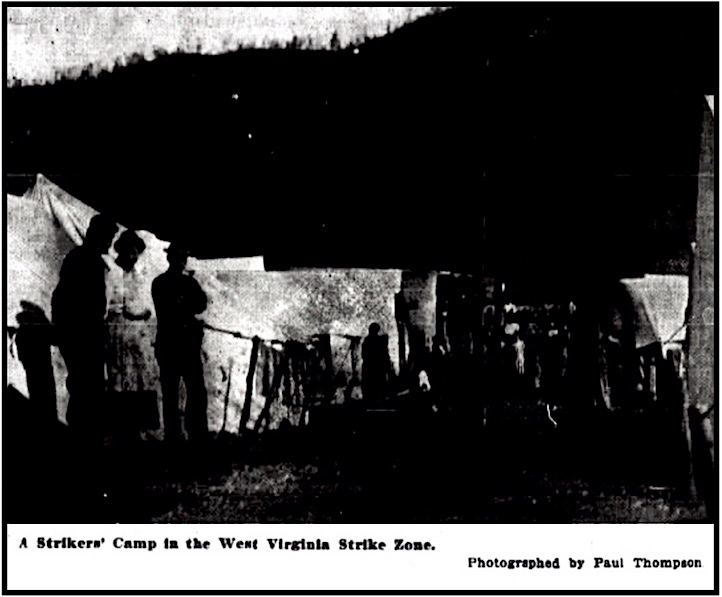 —————
—————
Hellraisers Journal – Thursday May 8, 1913
John W. Brown on West Virginia Despotism: The Military Court Martial

[Part III of III]
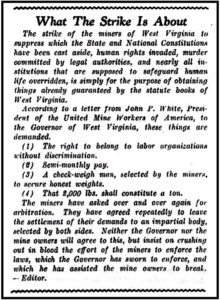
The [Military] “Court” convened about 9 a. m. on March the 7th. Squads of soldiers were sent to the different “Bull Pens” in different parts of the town and marshalled the defendants into the Odd Fellows Hall, where the court was in session. After fifty-three of the defendants were present, the Judge Advocate arose and addressed the court.
During his introductory remarks he advised the defendants that Houston and Belsher [Belcher], the attorneys for the United Mine Workers, had declined to appear in court, (he did not say that they refused to prostitute their profession by appearing before such an institution) but that he, as the Governor, or some one else, solicitous for the welfare of the defendants, had graciously and without any expense to the defendants, selected a couple of military men to defend the accused. It here developed that one of the “military lawyers” who was so chosen to defend the accused was one of the gentlemen who sat on the former commission and whose name was signed to the affidavit that the defendants were all guilty of murder and sundry other felonous crimes.
About this time J. W. Brown, one of the defendants, rose and asked the court to define for him his status in the case. The question was a little too big for the Judge Advocate, whereupon Brown tried to elucidate. He asked the judge if the court took the position that the Governor’s declaration of martial law suspended the state and national constitution, a position which the Judge Advocate took before the Supreme Court. This looked too much like a “leading question,” to use the vernacular of the American bar, for the Judge Advocate. He declined to answer, but told Brown to “proceed.” Brown then stated for the benefit of the court that as a citizen of the state of West Virginia and the United States his rights as such were woven and interwoven into the organic law of the State and the Nation.
If this junta had set aside both the State and National Constitution, then he had no rights to defend, as he would then be a subject and not a citizen. This being the case, he had no use for a lawyer and declined to acknowledge the jurisdiction, or the legality of the court and refused to enter a plea one way or another.
“Mother Jones,” the avenging nemesis of the coal miners, took the same position and added that “she had violated no law of the land; that she had done nothing but what she had done all over the United States and would do again when she got out.” Boswell, Battey [Batley], Parsons, and Paulson [Paulsen] took the same position. Parsons, who was quartered in the freight depot where most of the prisoners were kept, stated that he spoke for the “bunch,” to which the genial (!) Judge Advocate replied that he would enter a plea of “not guilty” for the whole “squad.” How kind, after having signed our death warrant!
This act having been performed, the wheels of justice began to grind, but before they made their first revolution they struck another snag. The attorneys for the United Mine Workers petitioned the District Court for a restraining order prohibiting the military court from trying the cases until after the question of jurisdiction had been determined by the United States Courts. A restraining order was placed in the hands of the Sheriff. This is the same gent who ordered the Baldwin thugs to fire on Holly Grove. Needless to say these papers were never served.
In the meantime one of the defendants, whose brother holds an official position in the Miners’ Union, had engaged counsel, or what is more to the point perhaps, the office holding brother secured counsel for him, in the person of “Mike” Mathny [Matheny] of the firm of Littlepage, Mathny and Littlepage. Mathny was present when the court opened to defend his client. When the Judge Advocate announced that he was going to try the prisoners in “squads” and the prisoners refused to enter a plea Mathny was up a tree.
Now comes about as lowdown and contemptible a trick as ever shyster lawyer pulled off. Between the attorneys for the defence and the Judge Advocate they agreed to take a recess. The prisoners were marched back to the “Bull pens,” after which the “Bunch” which Parsons spoke for in the morning were taken over to the hall where the court held its sessions, leaving Parsons in the “Bull Pen.” Here they were sweated and subjected to the third degree with the horrors of the penitentiary depicted on one side and the hope of acquittal on the other until the “bunch” were wheedled into signing a paper to the effect that the “court was a just and equitable tribunal and that they believed each man would get a fair trial and his just dues and therefore had decided to acknowledge the jurisdiction of the court and enter a plea of “not guilty.”
Continue reading “Hellraisers Journal: From The Coming Nation: “Military Despotism in West Virginia” by John W. Brown, Part III” →
 —————
—————
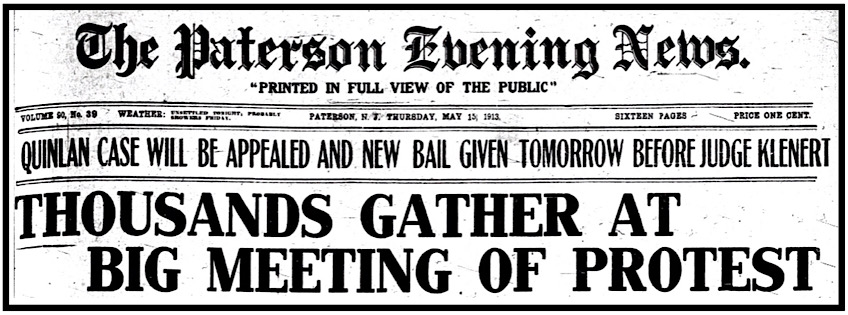
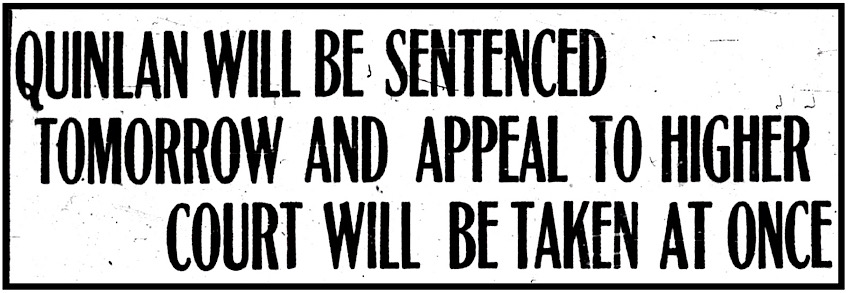
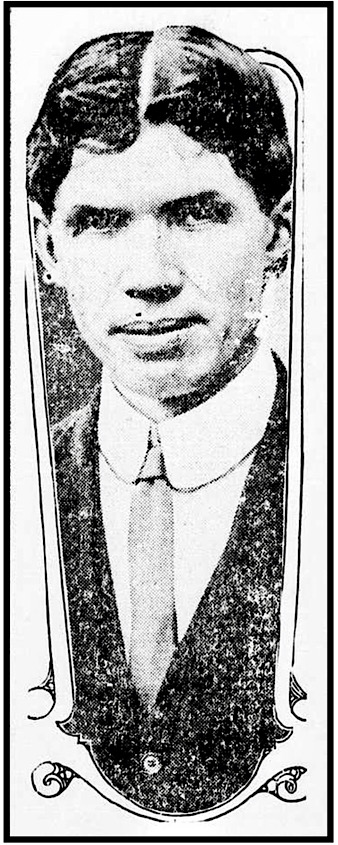
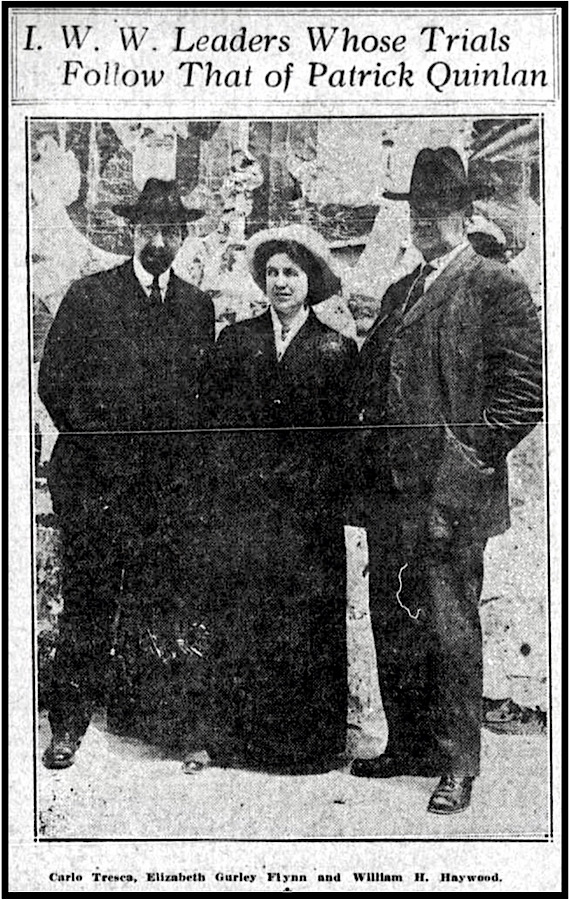
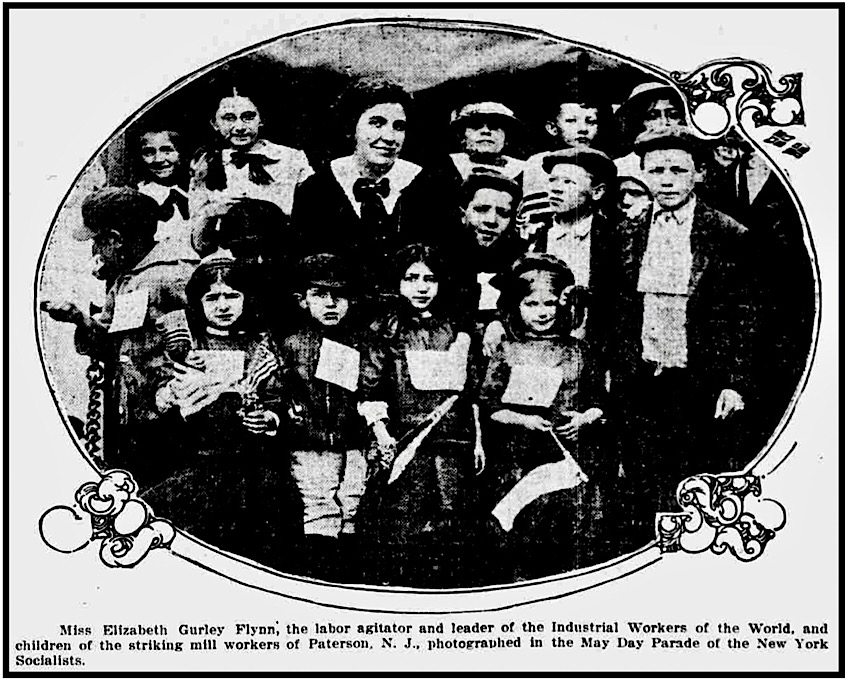
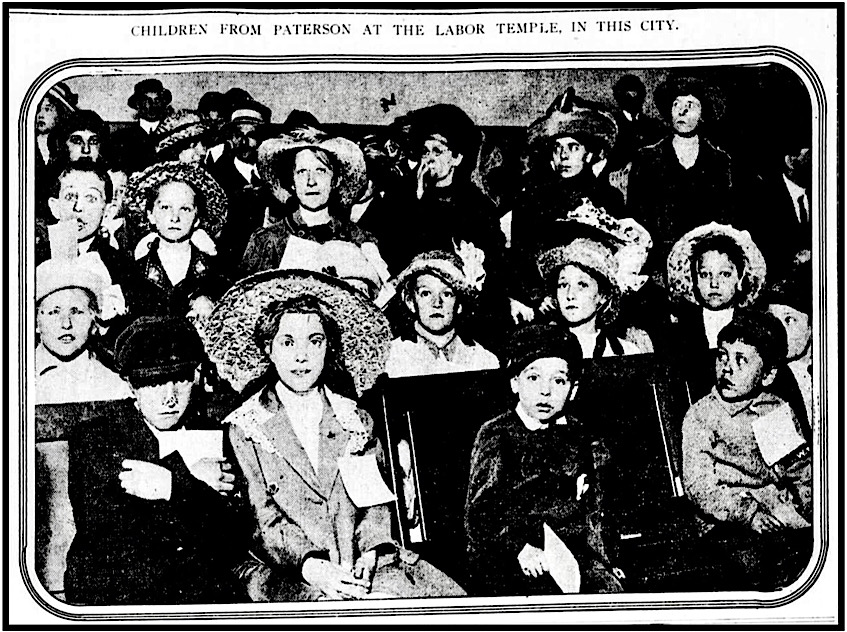
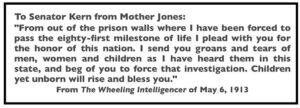 —————
—————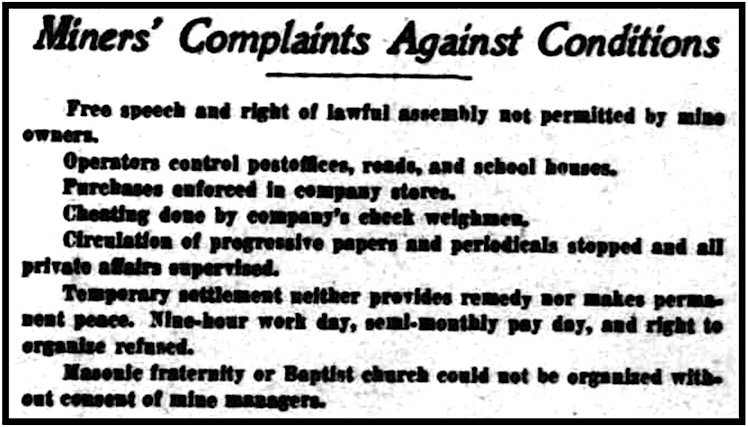
 —————
—————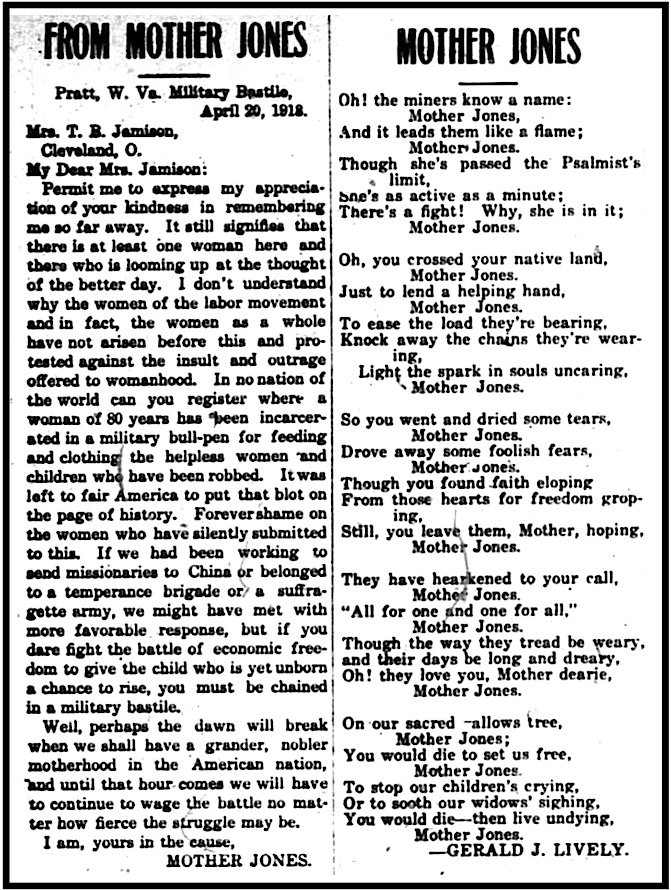
 —————
—————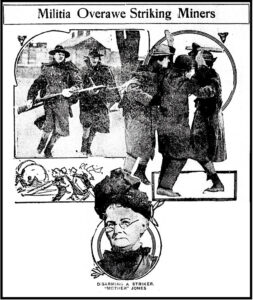
 —————
—————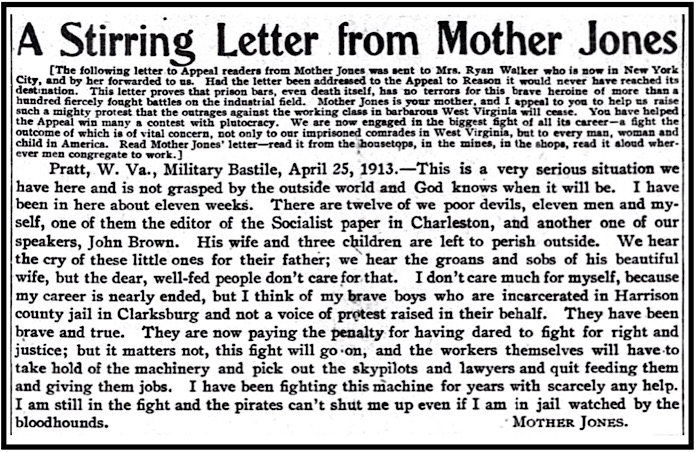
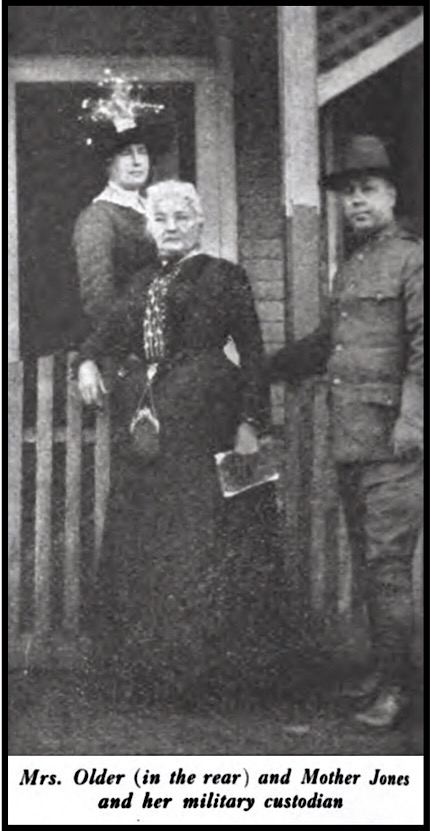
 —————
—————
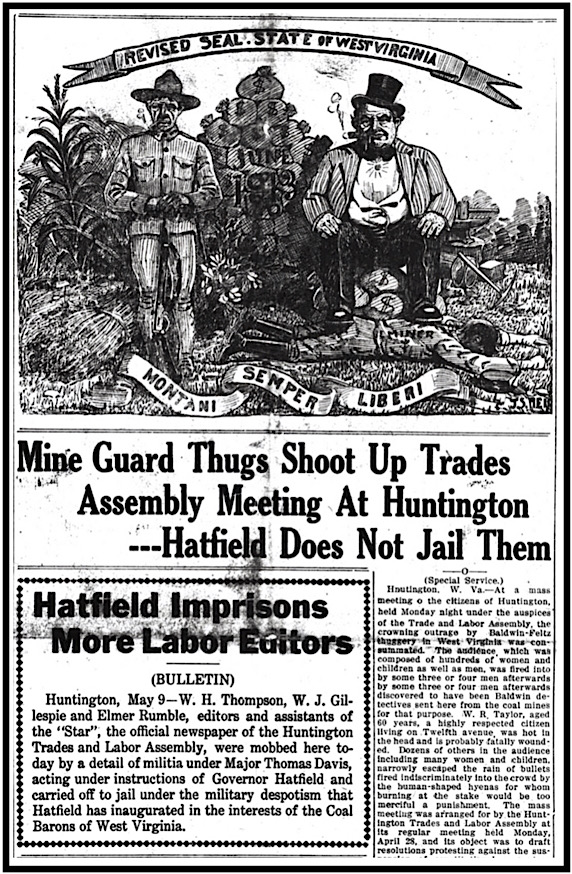
 —————
—————

